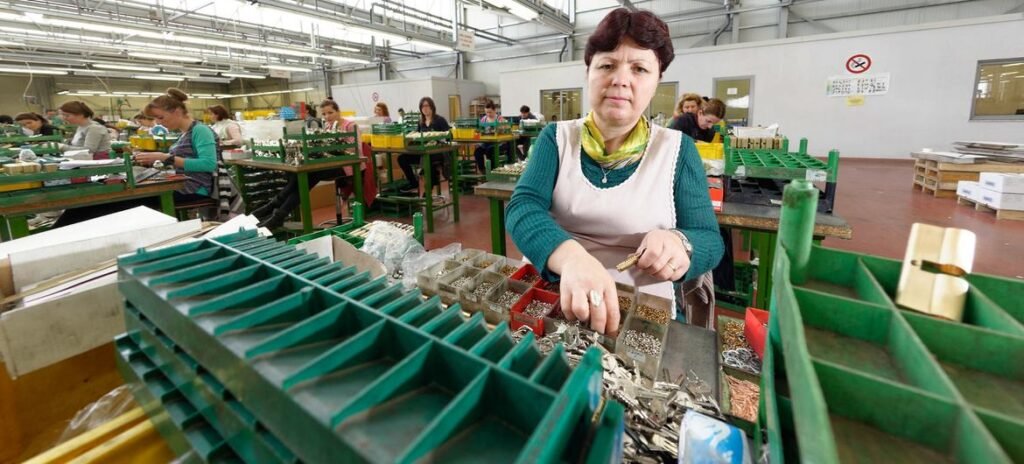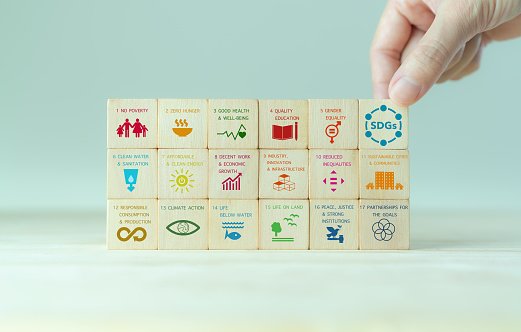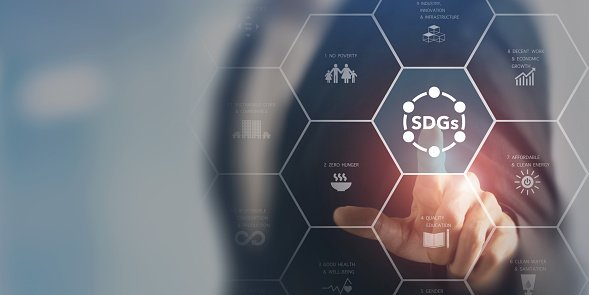Economic slowdown may force workers into ‘lower quality’ jobs

© ILO/Marcel Crozet | A woman works in a factory in Albania.
The International Labor Organization (ILO) said that global employment is expected to grow by just one percent in 2023, which is lower than half last year’s level. It is anticipated that the number of unemployed people will rise slightly to 208 million globally. According to the UN report, today’s economic slowdown means that many works will have to do lower quality jobs, often very low pay with insufficient hours. The world’s two billion informal workers will have to join the formal employment sector to get benefit from training opportunities and social protection. The cost-of-living crisis risks is pushing more people into poverty as prices increase faster than wages. In terms of gender perspective, there is a big concern for the unequal development of the global jobs market. Regarding the labor force participation, serious gender gaps is a major problem in terms of pay and social protection.
Sunshine, sea and sustainable tourism: Indonesian women entrepreneurs adapt to a changing world

© M. Gaspar / UNIC Jakarta | Members of the Budo tourism association prepare local delicacies for tourists.
When the sun sets over the Celebes Sea, the orange glow turns the horizon gold. At that time, a couple of dozen tourists are on the Budo’s pier. Budo is a village of 2400 perched on the ocean with 25 kilometers northeast of the regional capital Manado. Until a few years ago, the 300 meters long pier, crossing a mangrove forest to connect the village and the open sea was used only by fishers to head out to the sea. Back then, there were more fish and no tourists. Due to overfishing and shrinking stocks, prompting tourism is a new focus to create livelihoods. However, the Budo village fishing pier is now a tourist attraction. A program of the International Labor Organization (ILO) is supporting the rural community of Budo to diversify into sustainable tourism by providing skills to local entrepreneurs, especially women. The pier has been painted and renovated with the government support. Visitors can buy local drinks at the ticker counter and the orders are prepared and delivered by available members of the village association. Since the renovation, a fifth of the visitors spend more by ordering local drinks and delicacies at the ticket counter with the occasional tourists staying overnight.
UN chief calls for worldwide commitment to transforming education

© UNICEF/Mark Naftalin | Young girls attend class at a UNICEF-supported school in Helmand Province, Afghanistan.
UN chief called for countries to create education systems which can support dynamic economies, equal societies and the limitless dreams of every learner in the world. According to the data from UNESCO, some 244 million girls and boys are still out of school this year. In addition, 70% of 10-year-olds in low and middle-income countries cannot read and understand a simple text. The theme for the International Day this year is “to invest in people and prioritize education”. At the Transforming Education Summit, over 130 countries committed to ensure the universal quality education to become a main pillar of public policies and investments. As an outcome from the Summit, a Call to Action on Educational Investment was made with the establishment of the International Financing Facility for Education. Several global initiatives including to mobilize support for education in girls’ education, crisis situation, transforming teaching and ‘green’ education systems were launched.
Water’s a ‘dealmaker’ for multilateral cooperation and the SDGs

Credit: UN Photo/JC McIlwaine | Nyal Payam in South Sudan.
Under-Secretary-General for Economic and Social Affairs and the Secretary-General of the UN 2023 Water Conference, Li Junhua said that the upcoming summit will be an opportunity to unite the global community to take action and address the challenges surrounding water. He noted that the Conference is aimed to bring Heads of State and Government, Ministers and high-level representatives of governments and the UN system together. Even though access to water and sanitation is defined as a human right, billions of people worldwide still have to live without both services. As climate change is disrupting the water cycle and causing floods and droughts, many water sources are becoming more polluted and rivers are shrinking. To tackle the water problem, the Water Action Agenda, a platform that collects, follows and display the commitments at all levels, from government, private sector and civil society from all over the world was created.



